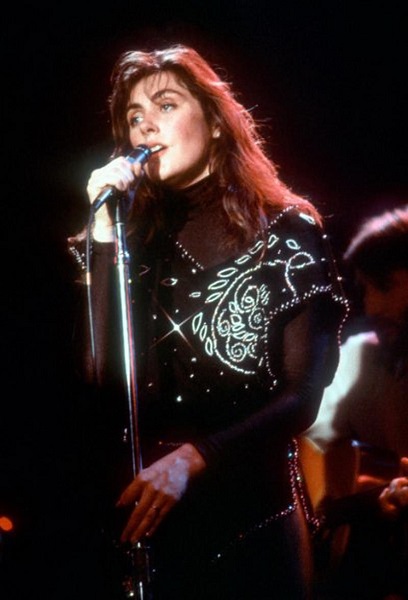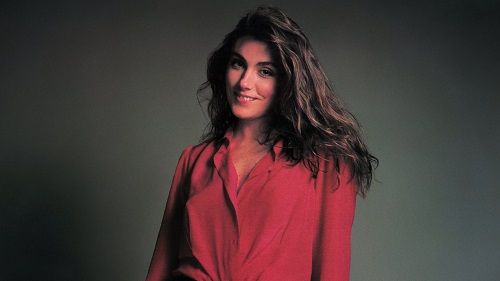Photos Courtesy of Other Half Entertainment Archive
One thing our society will never tire of — be it via sports, arts, or other mediums – is Cinderella stories.
One of the year’s best came courtesy of the St. Louis Blues who, after 52 NHL seasons, won their first Stanley Cup, beating the Boston Bruins four games to three.
Yet along with the talent, sportsmanship, and determination that goes into ascending the ranks of professional achievement, the team had one unlikely aid on its side — a 1982 Number Two synth-fueled hit song that, on first listen, has absolutely nothing to do with athletics or athleticism.
“Gloria,” made iconic by singer — and native New Yorker — Laura Branigan, became the rallying cry for the team and its rabid fans alike, who took fervently to the media (social and otherwise) to extol its merits. These efforts lifted the Blues from last place in the league to NHL champions. Like “Gonna Fly Now” for Philadelphia or “Dirty Water” for Boston, St. Louis now has an eternal anthem to associate with greatness.
I asked Blues spokesman Dan O’Neill for the rationale behind why “Gloria” became the rallying cry for St. Louis’ hockey troops. While denied a formal interview, I was instead offered the following response: “We thank you for coverage of the story/song. It took on a life of its own in a way we could not have predicted.”
Sadly, Branigan is not with us to enjoy this recent wave of “Gloria” mania, which began with simple song requests at a Philadelphia club to Blues players routinely playing it in their locker room post-victories. She sadly passed away 15 years earlier at the age of 52.
“I think she would just be so appreciative of it all,” Branigan’s longtime manager Kathy Golik told me recently. “It would have caught her off guard, but it would have been obviously a very positive thing.”
Branigan’s “Gloria” would stay on the Hot 100 for nine months, then a record for a female artist. Through her powerhouse vocals, she reflects a stance of empowerment and not letting the protagonist be deterred by the influences around her. It’s “Working Girl” without any allusions to the workplaces of the era. It’s unfettered freedom whether monogamy or dalliances are in the cards. It’s disco-derived three years after disco was declared dead at Comiskey Park in Chicago.
“(Laura) would say it’s about a girl that’s running too fast for her steps, and she’s listening to all the voices in her head and everybody else trying to influence her,” Golik said. “It’s about a girl from the wrong side of the tracks trying to get herself straightened out.”
The song would go on to sell a million companies and launch Branigan to stardom in the era of new wave ingenues. It’s popped up everywhere from “Will & Grace” to “American Horror Story” to the film “Gloria Bell.” In the 1983 film “Flashdance,” the song shines through during an impactful ice skating montage, my favorite scene right after Cynthia Rhodes’ glittery “Manhunt” sequence.
My own mother will remind me of “Gloria’s” infectiousness every time she hears it, especially since she was alive (I wasn’t) to hear it when it was first released stateside. Believe me, I’ve got my Bar Mitzvah video to prove how much she loves the song.
“All I know is when the bosses left the office — we occupied the entire floor — and that song came on, we cranked up the volume and went ape shit!” she texted me recently when I told her I’d be working on this column.
“(Laura) was always very thankful for (‘Gloria’) and had a lot of gratitude for it because she said it’s what launched her career,” Golik said. “She was always very positive and always very happy to be associated with ‘Gloria.’ It’s one of the iconic songs of the Eighties.”
But before Branigan made “Gloria” her own and set a 21st century precedent for inspiring songs, it’s important to realize that “Gloria” actually made its formal debut 40 years ago this year in the form of a track by Italian superstar Umberto Tozzi. Inspired by Donna Summer’s chart-topping remake of “MacArthur Park,” Tozzi and partner Giancarlo Bigazzi would reach out to song arranger Greg Mathieson to have him weave musical magic over a tune they penned entitled “Gloria.”
“They hear ‘MacArthur Park’ and they want that sound,” Mathieson told me recently. “They want ‘Gloria’ to sound that way. That’s how I got the gig.”
While Tozzi and Bigazzi had a basic framework of the song assembled, it would be Mathieson – the future producer of Toni Basil’s Number One hit “Mickey” — who would add the track’s sweeping opening, emotional strings and horns, and galloping closing riffs — courtesy of his jazz improvisation leanings.
“They needed somebody to make the whole thing go,” he said. “It was challenging but exciting. For me it was a brave experience.”
Tozzi would take “Gloria” in its original form to the Top Five throughout Europe and South American. It’s virtually identical to Branigan’s version, just in a lower key. However, it’s no less dynamic. Try not playing it three times in a row and resisting the urge to let inhibitions run wild.
Fast forward to 1982 and Mathieson is co-producer of Laura Branigan’s debut album Branigan. “Gloria” becomes top of mind for the young singer to record, albeit with English lyrics. It’s lyricist Trevor Veitch who gives “Gloria” her American tale of empowerment and perseverance.
“This was Laura’s first record. She had a big massive voice and the hardest part for this song was trying to get it in the right key because even for Umberto, this song has an extreme range. For any singer this song is hard to sing,” Mathieson said. “It took a while to get this vocal and I had to push her. I did most of the vocals with her and coached her through the album. She was real nice, and she was real pleasant to work with. She didn’t have an attitude. She took direction real great.”
Yet while Mathieson knew of the song’s hit potential for the US, he said others in the studio weren’t quite so sure. It was tossed about that the arrangement should be changed. And it was — to as small a degree possible. Strings and horns would be swapped out for synthesizers.
“It never occurred to me that I should change the arrangement because nobody in the United States had ever heard ‘Gloria.’ I thought, why should I change the arrangement if everywhere else in the world bought this arrangement and made it number one,” Mathieson told me. “It had become number one everywhere else in the world. It should be number one in the United States out of the box. Why change it?”
While Mathieson adds he “took heat” for the decision to maintain his arrangement, his justification was as follows: “Why mess with it if it’s not broken? That was my attitude. And I was proven right.”
Of course, the one standout element of the revitalized “Gloria” is Branigan herself who sings with complete conviction and confidence. It’s a stellar vocal performance, one that took “at least six hours” to capture, Mathieson said. In “Gloria’s” official music video, the song shines as brightly as the sequined outfit Branigan wears.
“Some vocalists will constantly ask you ‘Why?’ She never made a record before, so she was learning the process,” he said. “It made it easy. She was a trooper.”
Overall, Branigan was made — from concept to completion — within six weeks. It would go gold in the U.S. and launch Branigan to star status.
And for anyone wondering what Umberto Tozzi’s reaction was to the remake of his song:
“It was nothing but thank you — ‘Grazie, Greg!’,” Mathieson said. “They were real happy about it. That song was just the beginning of my career with Umberto.”
While the story could essentially end here, it shouldn’t.
That’s because Branigan is in no way a one-hit wonder, even though the airwaves of her successful period are permeated by the likes of Pat Benatar, Madonna, Cyndi Lauper and Tina Turner. Branigan is her own kind of songbird — more Sarah Brightman than Stevie Nicks, with a vibrato to die for. Listen to her tear the roof of “Power of Love” (later made famous by Celine Dion), “Solitaire,” and her biggest pop hit “Self Control.”
But she also demonstrates she can rock in a man’s world. If you were to replace her vocals on “Spanish Eddie” and “The Lucky One” with Michael Sadler’s, they’d be Saga songs. “Is There Anybody Here But Me?” is sensual in the Sade vein. And let’s not forget she Michael Boltonized “How Am I Supposed to Live Without You” before he took it to the top of the charts five years later.
Though her doe-eyed stage presence is one-of-a-kind, Branigan offstage was quite the opposite, replete with cooking and swimming skills, and a love for opera, classical music, and practical jokes, according to Golik.
“She just liked the simple things in life. She would much rather just talk about everything else than talk about her career,” she said. “She loved what she did but other than that she just wanted to be a regular, everyday person.”
Coming back to the Blues and their riding the “Gloria” train to victory, I asked Mathieson for his reaction: “I think it’s great. I’m sure if Laura was alive she would have dug it too. Man, I’m sure Umberto likes it too. Who wouldn’t like to be a part of that?”

***
Share your feedback and suggestions for future columns with Ira at vinylconfessions84@gmail.com.




















